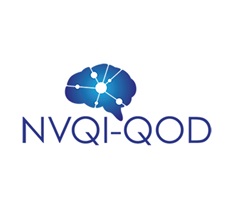 The Society of NeuroInterventional Surgery’s (SNIS) Patient Safety Organization (PSO)—in partnership with the NeuroPoint Alliance (NPA)—has announced that the NeuroVascular Quality Initiative Quality Outcomes Database (NVQI-QOD) has recorded more than 25,000 procedures in the registry.
The Society of NeuroInterventional Surgery’s (SNIS) Patient Safety Organization (PSO)—in partnership with the NeuroPoint Alliance (NPA)—has announced that the NeuroVascular Quality Initiative Quality Outcomes Database (NVQI-QOD) has recorded more than 25,000 procedures in the registry.
As stated in a recent press release, “this significant milestone underscores the value of clinical registries and real-world data”.
“We’re thrilled with the momentum the registry has seen since just 2021, when we hit 10,000 recorded procedures,” said Daniel Sahlein (Goodman Campbell Brain and Spine, Indianapolis, USA), medical director of the SNIS PSO. “Clinical registries give providers a critical tool to analyse data with the goal of strengthening outcomes for patients. The more data we have at our disposal, the more we achieve in providing safe and reliable neurovascular care.”
Since 2013, the NVQI-QOD has helped providers collect and analyse perioperative and follow-up data with the goal of improving patient care. Today, 40 medical centres throughout North America participate in the NVQI-QOD, covering nearly 23,000 total patients. The NVQI-QOD equips physicians with critical patient data on stroke and intracranial cerebrovascular diseases. Participation in the NVQI-QOD registry enables physicians, surgeons and hospitals to assess their technical efficacy, clinical outcomes, safety and complications, length of stay, and other critical metrics in comparison with national benchmarks for quality assurance and improvement.
The recent SNIS release notes that the NVQI-QOD is an externally hosted, web-based registry supported on the Fivos PATHWAYS platform—a secure, cloud-based solution for data collection and analysis. The database is governed by the SNIS PSO, which takes direction from a governing council comprised of representatives from both the NPA and SNIS. The NVQI-QOD is designed to easily integrate into a variety of workflows, allowing multiple users to access and enter data on a single form, and spread the responsibilities of data entry to more than one individual, the release adds.
Developed “by physicians, for physicians”, the database captures 100% of procedures—including important demographic, procedure and postoperative data—to provide comprehensive outcome analysis and inform performance improvement. A significant advantage of the NVQI-QOD is the inclusion of long-term outcomes of one year or longer, according to the release.
“The NVQI-QOD’s physician-driven, safety-oriented design means improving outcomes will always be its top priority,” said J Mocco (Mount Sinai Health System, New York, USA), a member of the governing council and past SNIS president. “There is no substitute for real-world data and, when dealing [with] neurovascular procedures, the smallest details can make a world of difference. As the NVQI-QOD continues to grow, we expect continued valuable clinical discoveries, leading to crucial insights on how to better care for our patients.”









